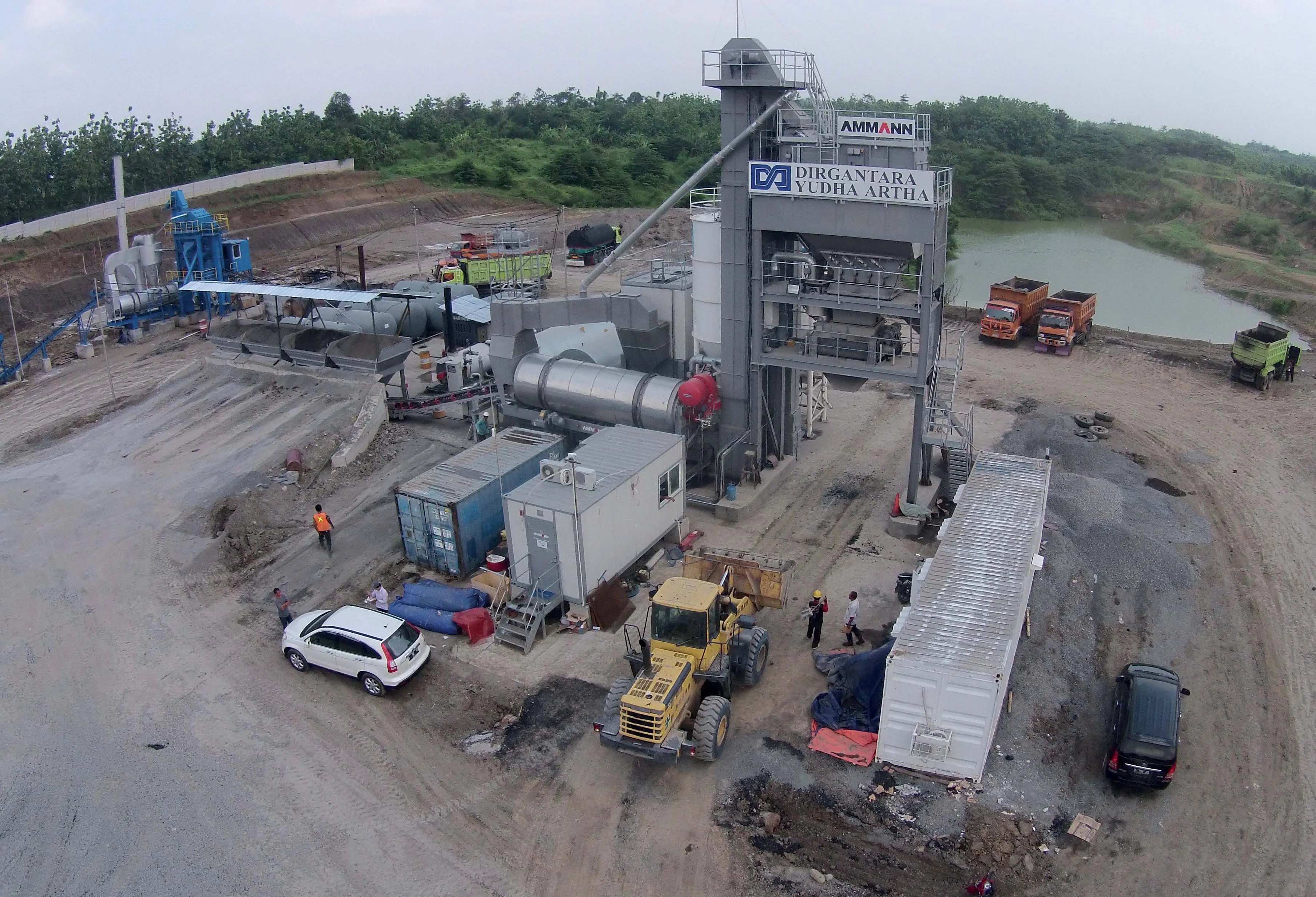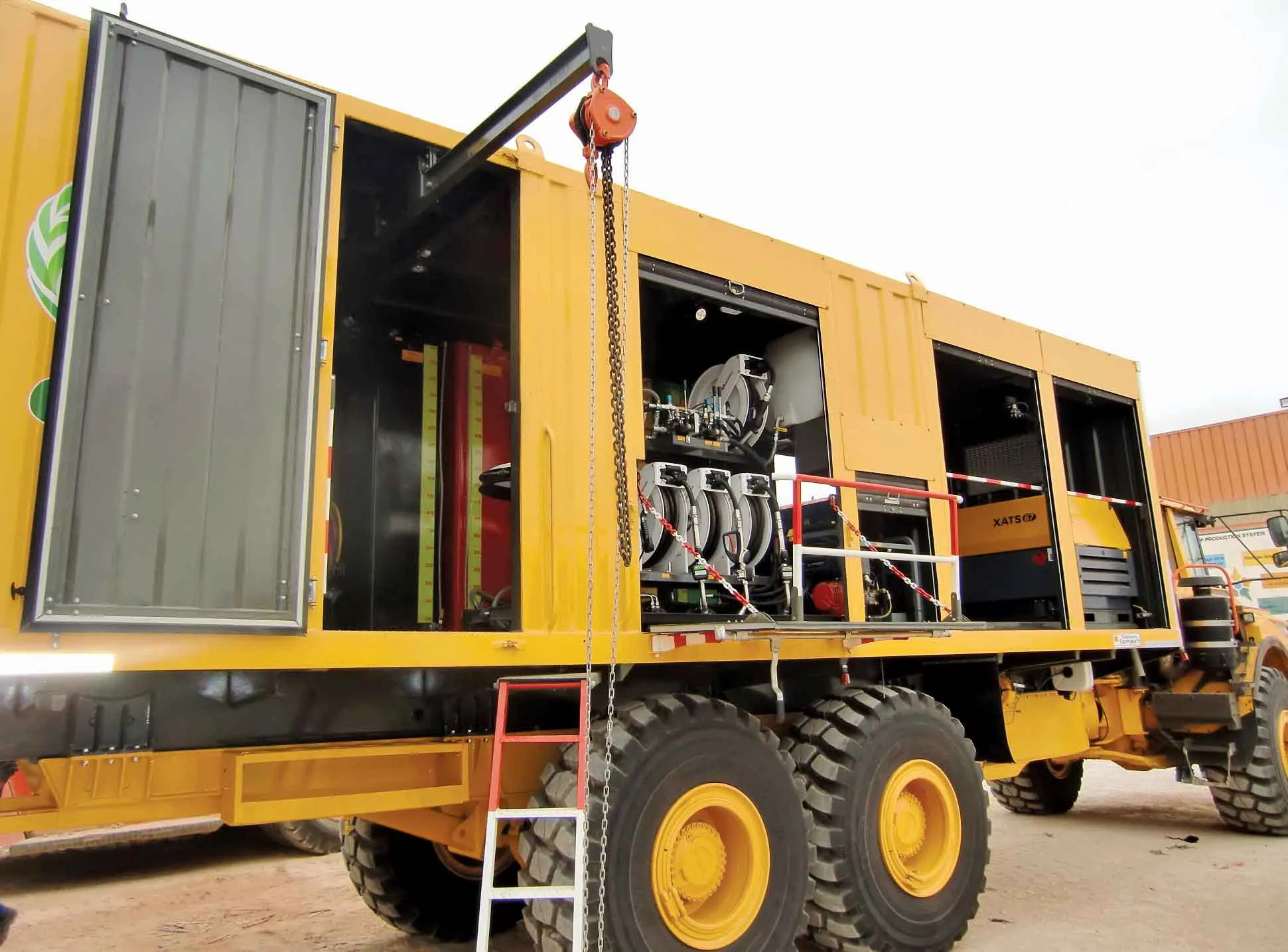
Other factors in the contractor selecting these plants were the reliable German design as well as the Miprotek M4 operating system which allows for partial or full automation of production. The recipe can be specified and changed at any time, or remain perfectly consistent, optimising overall control.
The plants are being used to help construction the 943.4km ‘Bright Path’ project in southeastern Kazakhstan, part of China’s massive Belt and Road Initiative. The new route is significant as it will contribute to making the country the preferred cross-continental transit hub in Central Asia. The plants are also being used to assist with materials for other major road rehabilitation projects the firm is carrying out in southeastern Kazakhstan.
As a crucial part of Kazakhstan’s ‘Bright Path’ project, the road improvement scheme covers the 180km Usharal-Dostyk (A7 Highway) port road in the Almaty region. This is in addition to the 763.4km Taldykorgan~Ust-Kamenogorsk (A3 Highway) section in the nearby, newly created Zhetysu region. The A7 Highway will be constructed to Kazakhstan II road standards, with a roadbed width of 15m providing two lanes for two-way traffic, while 53.445km of the A3 Highway is expected to adopt the Kazakhstan I-b road standard, with a 25.5m roadbed width catering for four lanes of two-way travel.
With a total length of 943.4km including alterations and new sections, the new highways will allow for designated speeds of up to 120km/h. This would provide an important gateway for connectivity between China, Kazakhstan and surrounding countries when the job is completed in 2023.
Transporting these large asphalt plants to the jobsites was the first hurdle to overcome. It was however made much easier thanks to their main modules being conveniently built within ISO certified shipping containers.
As a result, when the first two plants were shipped out to the Taldykorgan-Ust-Kamenogorsk and Usharal-Dostyk road improvement project 8, Lintec could send the plants by rail. With its trademark yellow containers, the train left the Lintec factory near Shanghai, China, heading towards the customer in the landlocked Central Asian nation, a great improvement from the traditional road freight or sea transit methods.
The Lintec team also customised the containers with a variety of protective measures for the journey, such as secure packaging, ensuring the equipment’s safety and eliminating the risk of theft or vandalism. Once the containers were unloaded, their modular construction made installation quick and convenient.
Another key benefit for installation was the fact that the containerised design means there is no need for concrete foundations. The flat, rigid surface area ensures high stability on suitably compacted soil. As the units have been tested in the plant prior to shipping, they can be commissioned very speedily.
In addition, the containerised design concept also provided each plant with protection from the harsh elements of the windswept Kazakh terrain.
The same protective structure also provides security advantages, with a single, lockable, access point in the design. Once access is granted, the walkways and staircases provide maintenance access to all levels. As the second largest capacity model of the range, the CSM4000 has an output of 320tonnes/hour of hot mix asphalt, in batch sizes of 4tonnes.








